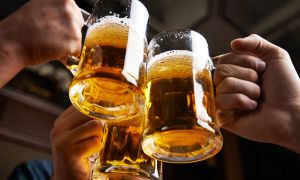One of the defining characteristics of addiction is that this bio-psycho-social-spiritual disease doesn't just affect your body and physical health; it has the ability to take over all areas of your life.
Physically, addiction will change your body and brain. The addict needs his or her drug of choice just to feel normal. Let's look at what this does to the other parts of your life. In 12-step programs, they say: You're as sick as your secrets. Since addicts need their drug of choice to feel normal, they will begin to lie to those around them in an attempt to cover up their addiction. They may miss work and invent excuses. They will lie to their loved ones, and this will begin to put a strain on romantic relationships, friendships, and your family.
The downward spiral has begun, and the psychological symptoms have begun to present themselves. Depression, anxiety, hopelessness, suicidal thoughts, mania, and impulsive behavior are common depending on the drug of choice. These symptoms will get worse, and consequences will begin to get worse. People in an addict's life will begin to find out about the addiction. Jobs and houses may be lost. Relationships will be strained or ruined - sometimes beyond repair. And spiritually, the addict may be engaging in behaviors that are not in line with the addict's former value system.
Of course, addicts use their drug of choice to self-medicate unpleasant feeling states and life experiences. So what does the addict do to try to deal with these consequences? He or she will use more. There may be unsuccessful attempts at quitting or cutting back, but ultimately, we know that this downward spiral will ruin the addict's life sooner or later unless the addict does the one thing that works: seek treatment.
Continue Learning about Substance Abuse and Addiction
Important: This content reflects information from various individuals and organizations and may offer alternative or opposing points of view. It should not be used for medical advice, diagnosis or treatment. As always, you should consult with your healthcare provider about your specific health needs.




